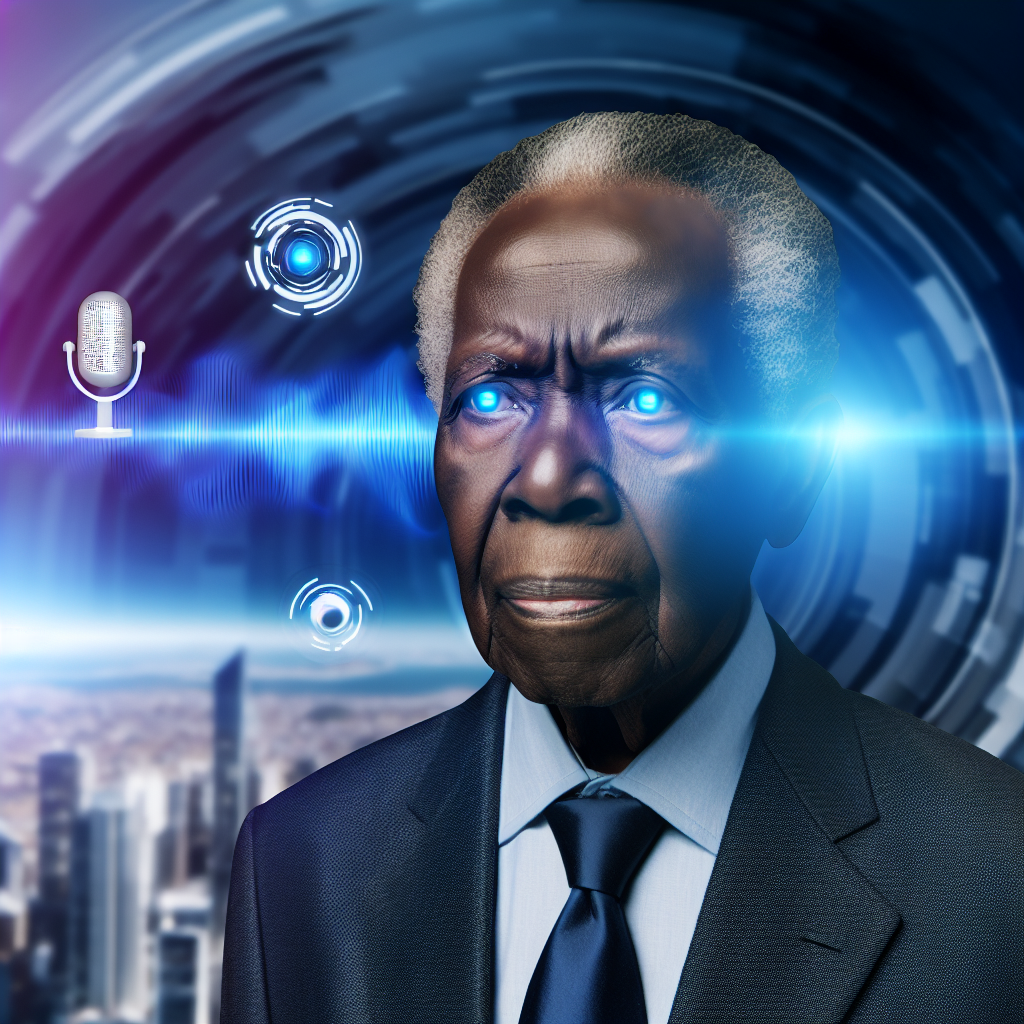Morgan Freeman Slams AI Voice Scam in Scathing Critique
The world of artificial intelligence (AI) has taken the stage once again — but this time, it’s not about advancements. It’s about a scam involving the memorable voice of Morgan Freeman. The legendary actor recently expressed his outrage over scammers using AI to imitate his voice. Let’s dive into the controversy and why it matters.
What is an AI Voice Scam?
First, let’s define what an AI voice scam is. In simple terms, AI voice scam involves the use of artificial intelligence to replicate a person’s voice. Scammers can create these voice replicas by feeding voice samples into sophisticated AI algorithms. The result? An eerily accurate imitation of the original voice, which can be used for fraudulent activities.
How Does AI Voice Replication Work?
Artificial intelligence uses machine learning algorithms to analyze voice patterns. Here’s a basic breakdown of the process:
- Collect Voice Samples: Recordings of the target voice are collected.
- Data Feeding: The voice data is fed into an AI model, which learns the nuances of the voice.
- Voice Generation: The AI can then create new sentences using the synthesized voice.
Imagine someone—without your permission—using technology to mimic your voice to trick others. In the case of Morgan Freeman, scammers are doing just that.
Morgan Freeman’s Reaction
Morgan Freeman is not a man who minces words. He came out strongly against the use of AI to fraudulently replicate his iconic voice. He described the act as not only unethical but also a form of identity theft.
“It’s an invasion of privacy and a violation of my identity,” Freeman said in a recent interview.
His concern is well-founded, especially given Freeman’s extensive influence in the media and entertainment industry. His voice is not just recognizable; it carries a presence that commands attention and respect.
Why Should We Be Concerned?
Morgan Freeman’s criticism shines a light on a larger issue that could affect all of us. Here’s why we should all take note:
Potential for Large-Scale Fraud
Scammers could use AI voice replication for various fraudulent activities, such as:
- Financial Scams: Imitating someone’s voice to make fraudulent calls or authorize transactions.
- Spreading Misinformation: Using the voice of trusted individuals to spread false information.
- Identity Theft: Creating synthetic identities using voice imitations.
Trust Issues
In a world where even a voice can be faked, it becomes harder to trust what we hear. This can have far-reaching consequences, eroding trust in media, communications, and even personal relationships.
Historical Perspective: Voice Imitation and Its Evolution
Voice imitation isn’t new; it’s been around for decades. Comedians and impressionists have long entertained audiences with their vocal imitations. However, these were human talents, easily distinguishable from the real person. What’s different now?
Enter Artificial Intelligence
AI has taken voice imitation to a whole new level. Unlike traditional voice imitation, AI replicas can be frighteningly accurate, often fooling even those familiar with the original voice. Remember the Turing Test? Developed by Alan Turing, it evaluates a machine’s ability to exhibit intelligent behavior equivalent to, or indistinguishable from, that of a human. Today’s AI voice replicas could very well pass this test, making it hard for anyone to tell the difference.
Technological Safeguards: Is There a Solution?
So, what can be done to prevent AI voice scams? Technology could very well offer a solution to a problem it created:
Voice Biometrics
Voice biometrics involve using voice features unique to an individual—for example, pitch, tone, and speech patterns—as a method of identification. Companies are already working on systems that can discern between a real human voice and an AI-generated one.
Regulation and Legislation
Stricter laws and regulations can act as a deterrent against misuse. Governments around the world are beginning to recognize the need for legal frameworks to govern the ethical use of AI technologies.
The Ethical Side: What Can We Do?
While technology might help, there’s also an ethical dimension to consider. Here are some steps we can all take:
- Awareness: Stay informed about the potential risks and benefits of AI.
- Advocacy: Support efforts and organizations working towards ethical AI usage.
- Personal Vigilance: Be cautious about sharing voice recordings and personal information.
Conclusion: A Call to Action
Morgan Freeman’s critique is more than just a personal grievance; it’s a wake-up call for all of us. As technology continues to advance, it becomes all the more crucial to address its ethical implications. Voice should be a personal asset, not a tool for scammers to exploit.
Let’s heed Morgan Freeman’s warning and strive for a future where technology enriches our lives without compromising our identities.
